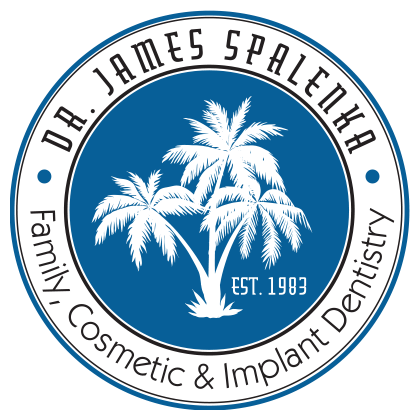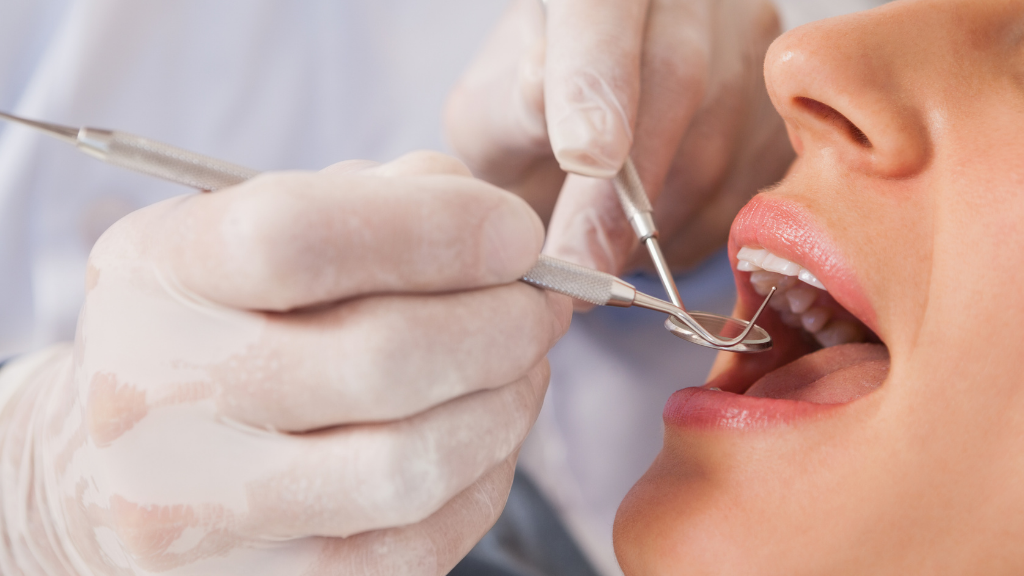Protect Your Family's Smiles with Preventative Dentistry
The Importance of Preventative Dentistry
- What is preventive dentistry?
Preventive dentistry refers to dental care and practices that are designed to prevent dental problems before they arise or before they become more serious. It involves regular dental checkups , cleanings , and other procedures that help maintain good oral health and prevent dental issues such as cavities, gum disease, and tooth decay.
Preventive dentistry is crucial because it can help detect and address dental problems early on, which can prevent them from becoming more serious and costly to treat. It can also help maintain good oral health and overall health, as there is a link between dental health and other health conditions such as heart disease and diabetes.
Common preventive dental procedures include regular dental checkups, professional cleanings, fluoride treatments, and dental sealants. During a checkup, a dentist will examine your teeth and gums for signs of any dental issues, while a professional cleaning will remove any plaque or tartar buildup that can lead to tooth decay and gum disease. Fluoride treatments can help strengthen your teeth and prevent cavities, while dental sealants can protect your teeth from decay.
- Why is preventive dentistry important?
Preventive dentistry is important because it offers several benefits, including:
>Early Detection of Dental Problems: Regular dental checkups allow dentists to identify and address dental issues early on before they become more serious and require more invasive and costly treatments.
>Lower Dental Costs: By practicing preventive dentistry, you can save money in the long run by avoiding more expensive dental procedures such as root canals, extractions, and implants.
>Improved Overall Health: There is a connection between dental health and overall health. Poor oral health has been linked to several health conditions, including heart disease, diabetes, and respiratory infections. By maintaining good dental health through preventive dentistry, you can improve your overall health and well-being.
Anyone can benefit from preventive dentistry, regardless of age or dental history. Children, adults, and seniors can all benefit from regular dental checkups, cleanings, and other preventive dental procedures. Special cases, such as pregnant women or patients with certain medical conditions, may require extra attention to ensure their dental health is maintained. Ultimately, anyone who wants to maintain good oral health and prevent dental issues from developing can benefit from practicing preventive dentistry.
- What are the common preventive dental procedures?
Here are some of the most common preventive dental procedures:
>Regular Checkups : Dental checkups are typically recommended every six months to detect any dental issues early on. During a checkup, a dentist will examine your teeth and gums, screen for oral cancer, and check for any signs of dental problems.
>Professional Cleanings: Even with regular brushing and flossing, plaque and tartar can build up on your teeth and gums, leading to tooth decay and gum disease. Professional cleaning involves removing this buildup and polishing your teeth to prevent future buildup.
>Fluoride Treatments: Fluoride is a mineral that can strengthen tooth enamel and prevent tooth decay. A fluoride treatment involves applying a concentrated fluoride solution to your teeth to help strengthen them.
>Dental Sealants: Dental sealants are a thin plastic coating that can be applied to the chewing surfaces of your back teeth (molars) to protect them from decay. Sealants can last up to 10 years and are typically recommended for children and teenagers who are at high risk of developing cavities.
>X-rays: X-rays can detect dental problems that are not visible during a regular checkup, such as tooth decay between teeth, impacted teeth, or bone loss due to gum disease. X-rays are typically taken every 1-2 years, depending on your dental history and risk factors.
By practicing these preventive dental procedures, you can maintain good oral health and prevent dental problems from developing or worsening.
- How often should you visit the dentist for preventive care?
The frequency of dental visits for preventive care depends on individual needs and risk factors. While some people may need to visit the dentist more frequently due to certain medical conditions or a higher risk of developing dental problems, most people should visit the dentist every six months for regular checkups and cleanings.
During these visits, the dentist can detect any dental issues early on and provide treatment to prevent them from becoming more serious. Regular cleanings can also remove any plaque or tartar buildup that can lead to tooth decay and gum disease.
However, if you have a history of dental problems or are at a higher risk of developing them, your dentist may recommend more frequent visits. On the other hand, if you have good oral health and a low risk of dental problems, your dentist may recommend less frequent visits.
Ultimately, it's important to discuss your individual dental needs and risk factors with your dentist to determine the best frequency of preventive dental visits for you.
6: How can you practice preventive dentistry at home?
Practicing preventive dentistry at home is an important part of maintaining good oral health. Here are some ways to practice good oral hygiene habits at home:
>Brushing and flossing Regularly: Brush your teeth at least twice a day and floss at least once a day to remove plaque and food particles that can lead to tooth decay and gum disease. Use fluoride toothpaste and a soft-bristled brush, and be sure to brush all surfaces of your teeth and your tongue.
>Eating a Healthy Diet: A healthy diet that is low in sugar and high in nutrients can help promote good dental health. Avoid sugary and acidic foods and drinks that can erode tooth enamel and lead to tooth decay. Instead, choose foods that are rich in vitamins and minerals, such as fruits, vegetables, dairy products, and lean proteins.
>Avoiding Tobacco Products: Tobacco use can lead to several dental problems, including gum disease, tooth loss, and oral cancer. If you use tobacco products, consider quitting to improve your dental health.
>Using Mouthwash: Mouthwash can help kill bacteria that cause bad breath, plaque, and gum disease. Choose an antiseptic mouthwash that contains fluoride to help strengthen your teeth and prevent tooth decay.
>Drinking Water : Drinking water can help wash away food particles and bacteria in your mouth and prevent dry mouth, which can lead to bad breath and tooth decay.
By practicing these preventive measures at home, you can maintain good oral health and prevent dental problems from developing. It's also important to see your dentist regularly for professional cleanings and checkups to address any dental issues early on.
- How can you find a good preventive dentist?
Finding a good preventive dentist is important for maintaining good dental health. Here are some tips for finding a good preventive dentist:
>Ask for Recommendations: Ask your friends, family, and colleagues for recommendations on good preventive dentists in your area. They may be able to provide valuable insights into their personal experiences with different dentists.
>Check Online Reviews: Check online reviews of dentists in your area to see what other patients are saying about their experiences. Look for dentists with positive reviews and high ratings.
>Research Credentials: Check the credentials of potential dentists, including their education, training, and experience. Look for dentists who have a good reputation in their field and who are members of professional dental organizations.
>Consider Communication and Comfort: It's important to find a dentist who makes you feel comfortable and who can address your specific dental needs. Consider visiting potential dentists for a consultation to get a sense of their communication style and bedside manner.
>Verify Insurance and Payment Options: Make sure the dentist accepts your insurance plan and has flexible payment options. This can help you save money and avoid any unexpected costs.
By taking these steps, you can find a good preventive dentist who can help you maintain good oral health and prevent dental problems from developing.

Understanding Dental Anxiety
Dental anxiety is a fear or phobia related to visiting the dentist. It is a common issue that can be caused by a variety of factors, such as negative past experiences, fear of pain, or feeling a lack of control.
The physical symptoms of dental anxiety can include
sweating
,
trembling
,
increased heart rate
, and
panic attacks
. Emotionally, patients may feel
anxious
,
scared
, or even embarrassed about the state of their oral health.
According to the American Dental Association, up to
15% of Americans avoid seeing the dentist due to anxiety and fear
. This can lead to delayed dental treatment and more severe dental issues in the long run.
It's important to know that dental anxiety is a real issue that many people face, and there are strategies that we can use to help patients manage their fear and receive necessary dental treatment. As a dental professional, my priority is to ensure that my patients feel comfortable and safe in my care.
The Impact of Dental Anxiety
Dental anxiety can have a significant impact on oral health. Patients with dental anxiety may avoid visiting the dentist, which can lead to delayed dental treatment and the progression of dental issues. When dental problems are left untreated, they can become more severe and potentially lead to tooth loss, gum disease, and other complications.
Avoidance of necessary dental treatment is a common issue for patients with dental anxiety. Patients may postpone or cancel appointments due to fear and anxiety, leading to further delay in treatment. This can exacerbate dental issues and potentially lead to the need for more invasive and costly treatment down the line.
Untreated dental problems can have serious consequences. For example, untreated cavities can lead to tooth decay, which can cause pain and discomfort. Advanced tooth decay can lead to abscesses or infection, which can spread to other parts of the body and become life-threatening if left untreated. Gum disease can lead to tooth loss and even impact overall health, as it has been linked to an increased risk of heart disease and other health issues.
As dental professionals, we understand the impact that dental anxiety can have on oral health, and we are here to help. We work with patients to help manage their anxiety and provide a comfortable and safe environment for dental treatment. We encourage patients to prioritize their oral health and seek treatment as soon as possible to avoid the potential consequences of untreated dental problems.
Overcoming Dental Anxiety
There are several tips and strategies that patients can use to manage their dental anxiety. One approach is relaxation techniques, such as deep breathing or visualization, which can help patients calm their nerves during dental procedures. Distraction methods, such as listening to music or watching television, can also be helpful in diverting the patient's attention from their anxiety. It may also be helpful to schedule appointments at times when the patient feels most relaxed and to bring a support person with them to the appointment.
Communication is key in managing dental anxiety. Patients should feel comfortable expressing their concerns and needs to their dental professional. A dental professional can explain the procedures and what to expect, which can help reduce anxiety. Additionally, the dental professional can work with the patient to establish a signal to stop the procedure if the patient feels overwhelmed.
For patients with severe anxiety, sedation dentistry may be an option. Sedation dentistry uses medication to help the patient relax during the procedure. There are several types of sedation, including nitrous oxide (also known as laughing gas), oral sedation, and intravenous (IV) sedation. Sedation dentistry can help patients manage their anxiety and receive necessary dental treatment.
It's important to remember that dental anxiety is a common issue and that dental professionals are here to help. We encourage patients to discuss their anxiety with their dental professional and explore different strategies to manage their fear.
Choosing a Dental Professional
Finding a dental professional who understands and addresses dental anxiety is crucial for patients with this fear. A dental professional who is experienced in treating anxious patients can help alleviate fears and create a comfortable and safe environment for treatment. Dental professionals who are knowledgeable about dental anxiety can also offer strategies and techniques to manage anxiety during treatment.
When choosing a
dental professional
, it's important to research and read reviews from other patients who have dealt with dental anxiety. Look for a dentist who has experience treating anxious patients and who has a calm and patient demeanor. Consider scheduling a consultation with the dentist to discuss your concerns and see if you feel comfortable with them. Additionally, ask about the dentist's experience with sedation dentistry and their approach to managing anxiety during treatment.
Seeking out a dental professional who offers sedation dentistry can be beneficial for patients with severe anxiety. Sedation dentistry can help patients manage their anxiety and receive necessary dental treatment. When choosing a dental professional, consider their approach to sedation dentistry and their experience with the different types of sedation.
In conclusion, finding a dental professional who understands and addresses dental anxiety is crucial for patients with this fear. Patients should research dentists who are experienced in treating anxious patients and consider the benefits of sedation dentistry. A dental professional who prioritizes patient comfort and safety can help alleviate dental anxiety and promote good oral health.
Conclusion
Dental anxiety is a common fear that can have a significant impact on oral health. Patients with dental anxiety may avoid necessary dental treatment, which can lead to more severe dental issues in the long run. However, there are strategies for managing dental anxiety, such as relaxation techniques, communication with the dental professional, and sedation dentistry. Choosing a dental professional who understands and addresses dental anxiety is important for patients with this fear.
We encourage readers who struggle with dental anxiety to take steps to address their fear and seek out a dental professional who can help. Dental professionals are trained to manage anxiety and create a comfortable and safe environment for dental treatment. Prioritizing oral health is crucial for overall health and well-being.
For additional resources on managing dental anxiety and finding a dental professional who understands this fear, we recommend consulting with the American Dental Association or the Dental Anxiety Network.
We hope that this blog has been helpful in understanding dental anxiety and strategies for managing it. Remember, dental professionals are here to help alleviate anxiety and promote good oral health.



